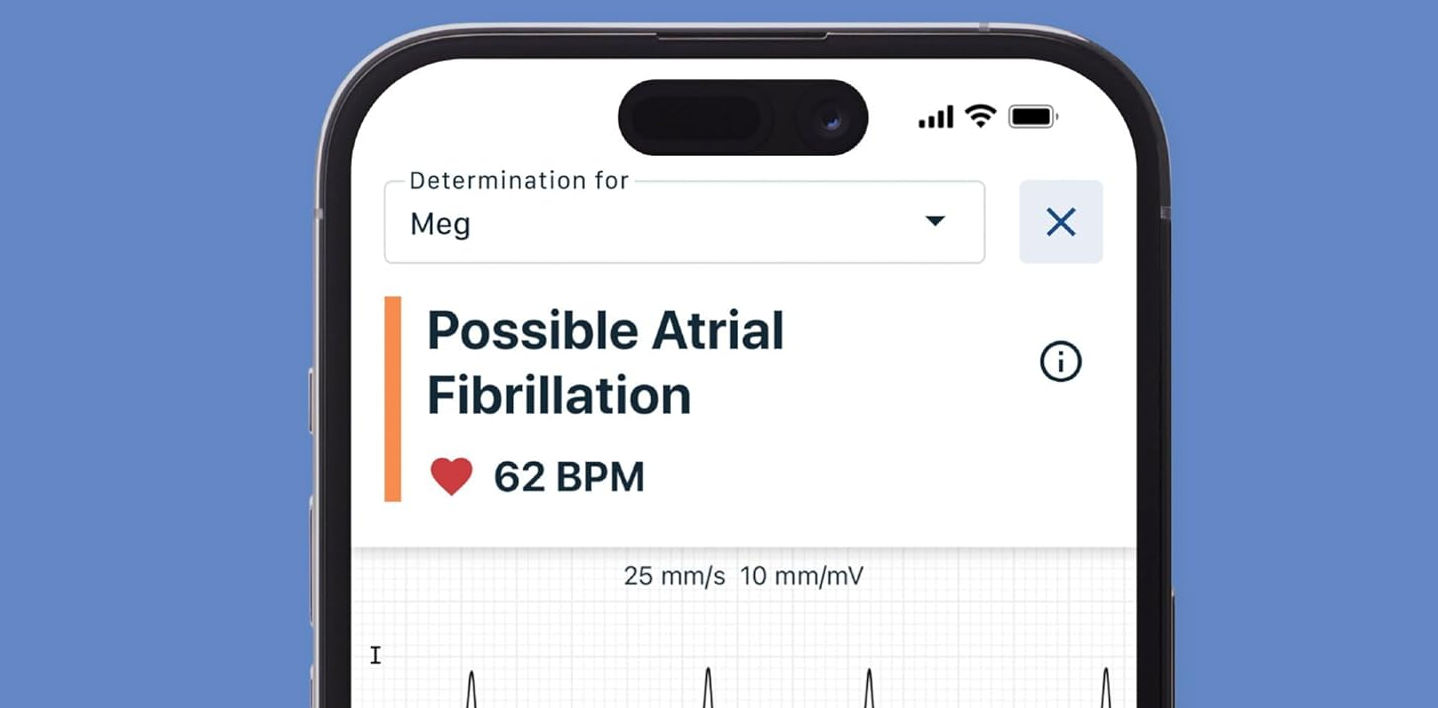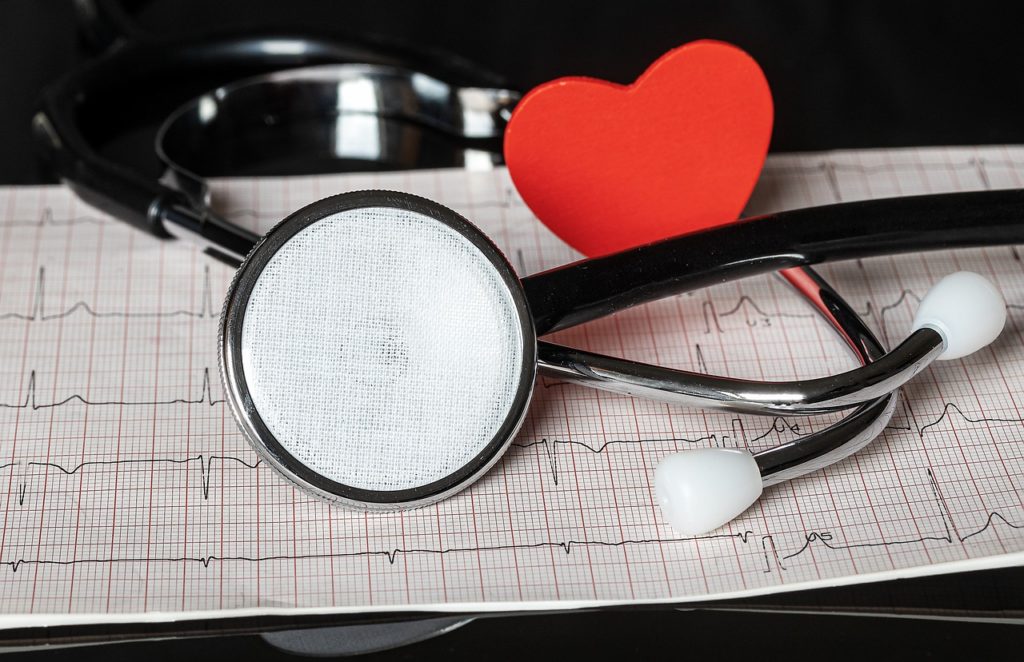Heart disease remains one of the leading causes of death globally, and the importance of early detection and preventive care cannot be overstated. Electrocardiograms (ECGs) – including those conducted by devices such as the KardiaMobile 6-Lead ECG Monitor – play a crucial role in monitoring heart health and identifying potential issues before they become life-threatening. In this blog, we will explore how regular ECGs can contribute to preventing heart disease and the significance of proactive heart health monitoring. Please note, we are not health professionals, and this information is intended to complement professional medical advice.
Understanding ECGs
An electrocardiogram (ECG) is a test that measures the electrical activity of the heart. This non-invasive procedure records the heart’s rhythm and activity on a moving strip of paper or a digital screen. Traditional ECGs conducted in medical settings typically involve 12 leads (electrodes) placed on the chest, arms, and legs, providing a comprehensive view of the heart’s activity.
However, advancements in technology have led to the development of portable ECG devices like the KardiaMobile 6-Lead ECG Monitor. These devices allow individuals to monitor their heart health from the comfort of their own homes, making regular ECG monitoring more accessible and convenient.
How Regular ECGs Can Prevent Heart Disease
Early Detection of Arrhythmias
One of the primary benefits of regular ECG monitoring is the early detection of arrhythmias—irregular heartbeats that can lead to severe complications if left untreated. Conditions such as atrial fibrillation (AFib) can be asymptomatic, meaning individuals may not be aware they have an irregular heartbeat. Regular ECGs can detect these arrhythmias early, allowing for timely medical intervention and reducing the risk of stroke and other heart-related complications.
Monitoring Chronic Heart Conditions
For individuals with chronic heart conditions, regular ECG monitoring is essential. It helps in tracking the effectiveness of ongoing treatments and medications. By continuously monitoring the heart’s activity, patients and their healthcare providers can make informed decisions about treatment adjustments, ensuring optimal heart health management.
Identifying Silent Heart Attacks
Silent heart attacks, also known as silent myocardial infarctions, often go unnoticed as they lack the typical symptoms associated with heart attacks. Regular ECGs can reveal changes in the heart’s electrical patterns indicative of a silent heart attack, prompting further investigation and preventive measures. Early detection of these events can significantly improve outcomes and reduce the risk of subsequent heart attacks.
Assessing Heart Health in High-Risk Individuals
Individuals with risk factors such as hypertension, diabetes, high cholesterol, and a family history of heart disease can benefit immensely from regular ECG monitoring. These risk factors increase the likelihood of developing heart disease, and proactive ECG monitoring can help identify early signs of heart issues. Early intervention and lifestyle modifications can then be implemented to mitigate these risks.

The Importance of Proactive Heart Health Monitoring
Empowering Individuals with Health Data
One of the significant advantages of portable ECG devices like the KardiaMobile 6-Lead ECG Monitor is that they empower individuals to take control of their heart health. By providing real-time data, these devices enable users to track their heart activity regularly, understand their heart health better, and take proactive steps towards maintaining it.
Reducing Healthcare Costs
Preventive health care, including regular ECG monitoring, can lead to substantial savings in healthcare costs. Early detection and management of heart conditions can prevent the need for expensive treatments and hospitalisations. By identifying issues before they escalate, individuals can avoid costly medical procedures and enjoy a better quality of life.
Enhancing Patient-Doctor Communication
Portable ECG devices facilitate better communication between patients and their healthcare providers. With the ability to share ECG data remotely, patients can keep their doctors informed about their heart health regularly. This continuous flow of information enables doctors to make more accurate diagnoses, tailor treatments, and provide timely advice.
Promoting a Heart-Healthy Lifestyle
Regular ECG monitoring can serve as a powerful motivator for adopting and maintaining a heart-healthy lifestyle. When individuals see the direct impact of their lifestyle choices on their heart activity, they are more likely to engage in behaviours that promote heart health, such as regular exercise, a balanced diet, and smoking cessation.
Practical Tips for Using Portable ECG Devices
Choosing the Right Device
When selecting a portable ECG device, it is essential to consider factors such as ease of use, accuracy, and compatibility with other health monitoring tools. The KardiaMobile 6-Lead ECG Monitor, for instance, offers a user-friendly interface, high accuracy, and seamless integration with smartphones and health apps.
Understanding ECG Readings
While portable ECG devices provide valuable data, it is crucial to understand that they are not a substitute for professional medical advice. Users should familiarize themselves with basic ECG readings and patterns but always consult healthcare professionals for interpretation and diagnosis.
Maintaining a Regular Monitoring Schedule
To reap the full benefits of regular ECG monitoring, individuals should establish a consistent monitoring schedule. Depending on their health status and risk factors, this might involve daily, weekly, or monthly ECG recordings. Consistency is key to identifying trends and changes in heart activity over time.
Combining ECG Monitoring with Other Health Practices
ECG monitoring should be part of a comprehensive approach to heart health. Combining regular ECGs with other practices such as routine check-ups, blood pressure monitoring, and maintaining a healthy lifestyle can significantly enhance overall heart health and preventive care efforts.

KardiaMobile 6-Lead ECG Monitor
Regular ECG monitoring is a powerful tool in the fight against heart disease. By enabling early detection of arrhythmias, silent heart attacks, and other heart conditions, ECGs can play a pivotal role in preventive health care. Portable devices like the KardiaMobile 6-Lead ECG Monitor make it easier than ever for individuals to take control of their heart health and engage in proactive monitoring.
However, it is important to remember that ECG monitoring is just one aspect of a comprehensive heart health strategy. A heart-healthy lifestyle, regular medical check-ups, and collaboration with healthcare professionals are all essential components of effective heart disease prevention. While portable ECG devices provide valuable insights, they should be used as a complement to professional medical advice and not a replacement.
By embracing regular ECG monitoring and proactive heart health practices, individuals can significantly reduce their risk of heart disease and enjoy a healthier, longer life. Always consult with healthcare professionals before making any significant changes to your health regimen.
Please note, while we provide information on the benefits of regular ECG monitoring, we are not health professionals. It is essential to seek professional medical advice for accurate diagnosis and treatment of heart conditions.

